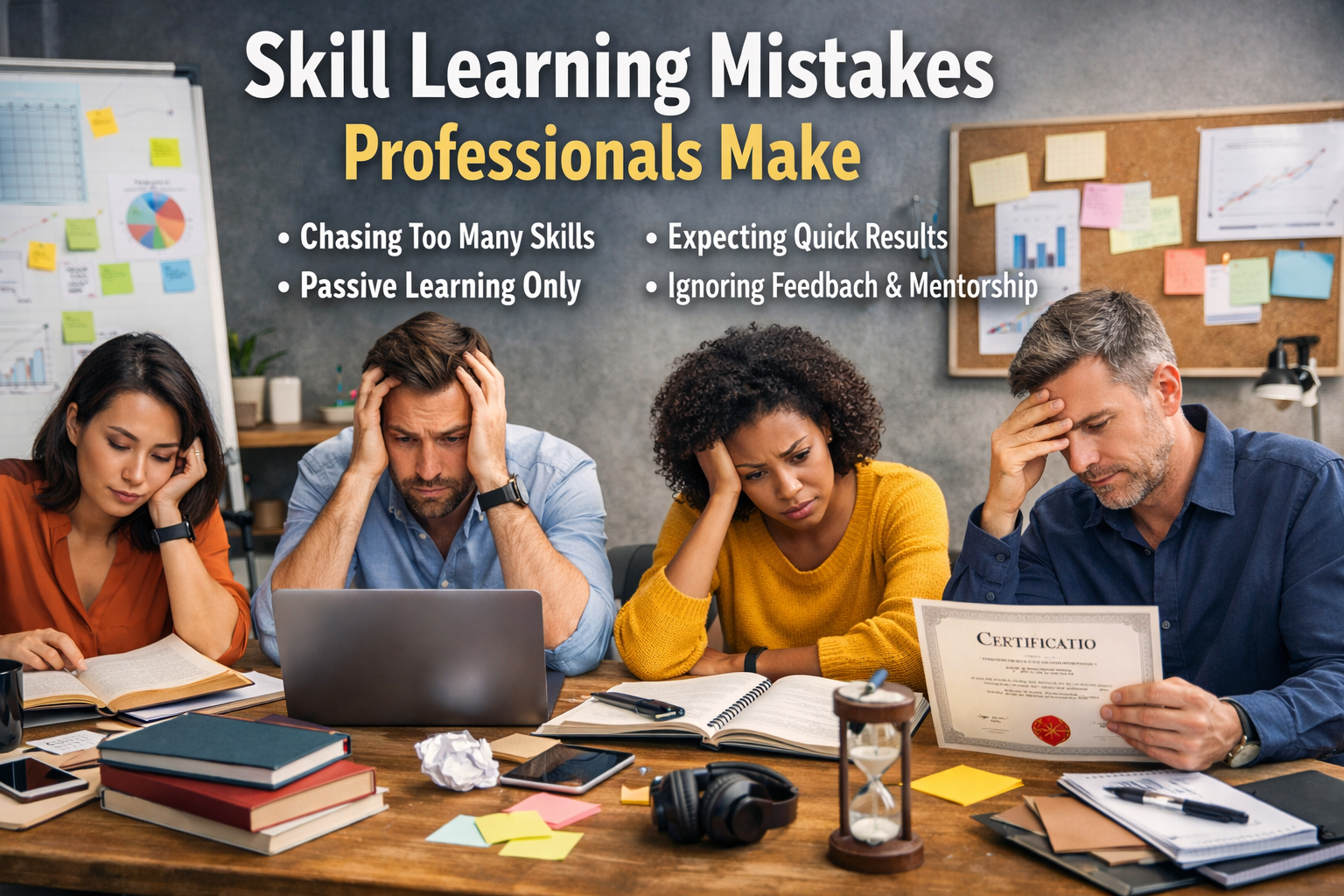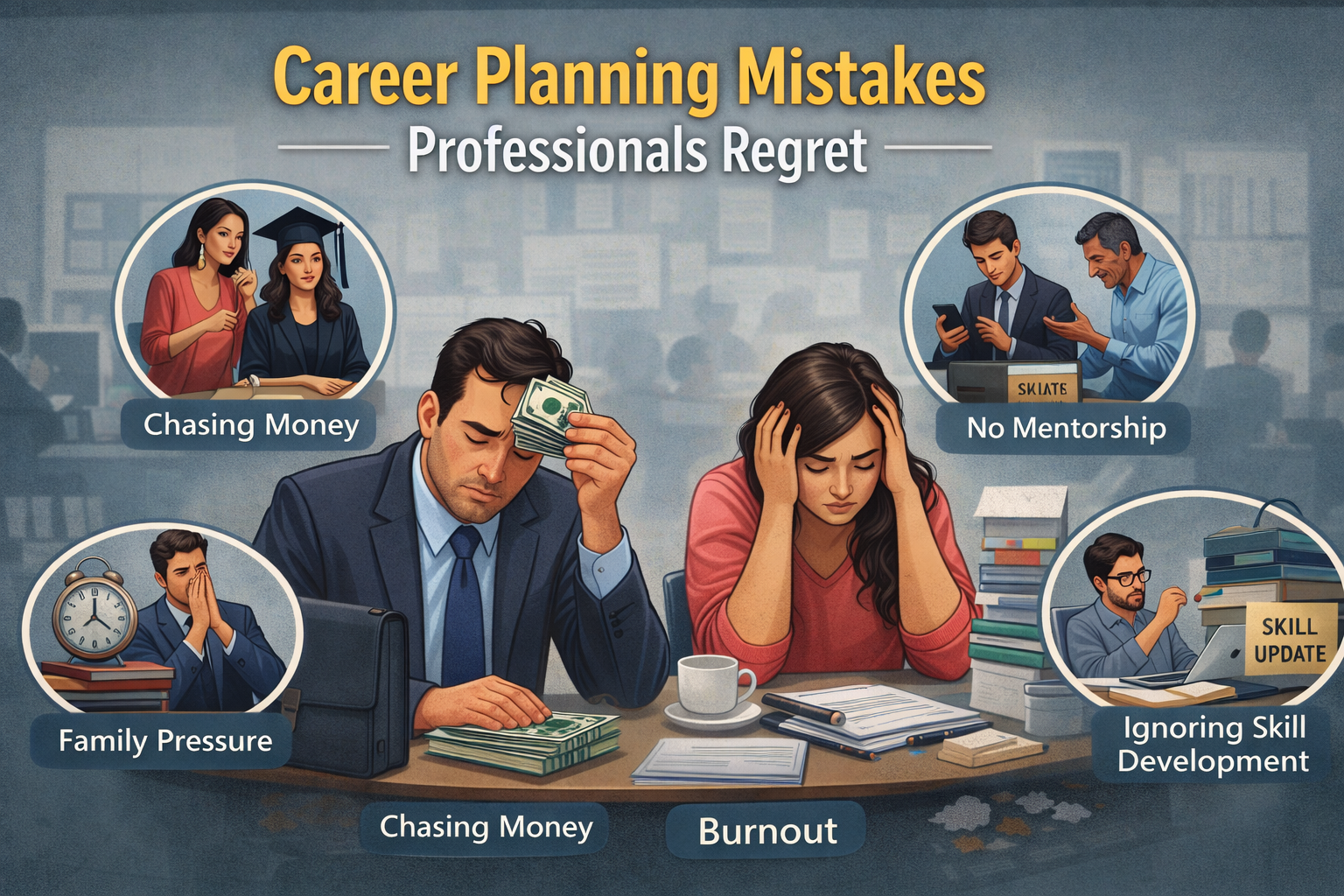Introduction
In 2025, the software industry is evolving at a fast pace. AI automation, cloud computing, and remote work have changed hiring and the landscape. The skills that were most in demand may not be that valuable now, and companies want an updated skill set and fresh talent by introducing new technology.
Understanding hiring trend is important because this is not just for recruiters; instead, it also makes a roadmap for job seekers. Recruiters know how they have to identify the right talent and job seekers get clarity on which skills they have to focus on for their career. If you understand the expectations of the current hiring industry, then you can make your career future-proof and you will be a step ahead in the competition.
Want a quick summary? Click here.
In-Demand Technical Skills for Software Industry
In 2025, the demand for technical skills will be more advanced in the software industry. Only having programming language skills is not enough; companies are searching for professionals who can work in multiple domains and can adapt to rapidly changing technology easily.
- Cloud Computing (AWS, Azure, GCP)
Cloud adoption has become a necessity for every company. Professionals and highly in-demand individuals who work on a wide range of Azure and Google Cloud Platform are in demand because businesses are adopting cloud infrastructure for their scalable and secure operations.
- AI/MI and Generative AI Integration
Today’s Software solutions are incomplete without Artificial intelligence and machine learning. Generative AI is used in coding automation and in even content creation. Developers who know how to integrate AI and ML models have a higher demand and value.
- Cybersecurity Skills
As cyber threats are increasing, the demand for professionals in cybersecurity is also high. Companies need people who can protect data, detect vulnerabilities, and create a secure framework.
- DevOps and Automation
DevOps and automation have become a backbone in a past-paced development environment. Because of continuous integration, deployment pipeline, and automated testing, recruiters prefer those professionals who can manage the software life cycle efficiently.
- Full-Stack Development
In today’s time, full-stack developers are a golden asset. Professionals who can handle both frontend and backend are in high demand because they reduce dependency on multiple resources.
Soft Skills for Software Industry
In 2025, securing a job with only technical skills will be difficult. Recruiters now prefer candidates who have technical knowledge as well as strong soft skills. These skills are crucial for career growth and to stand out.
- Communication and Collaboration
Clear communication has become a must-have skill in the time of remote and hybrid work setups. Recruiters value those professionals who can understand complex ideas in simple words and can collaborate effectively with the team. Good communication is important for a smooth project delivery and to avoid misunderstandings.
- Problem-Solving and Adaptability
Every day there are new challenges in the Software industry, like bugs, client expectations, and the latest technology. Recruiters prefer candidates who can quickly adapt to changes and come up with solutions for every problem. Flexibility and adaptability are strong assets for long-term success.
- Leadership and Team Management Even for a Remote Setup
Leadership is not limited to senior positions only. Recruiters prefer those candidates who have leadership qualities like motivating the team, managing deadlines, and handling complex tasks, whether it is in a team office or at a remote setup. Virtual leadership skills like empathy and building trust have become more valuable.
Remote and Hybrid Work Preferences
Now remote and hybrid work has become a standard model. Now companies do not only search for office-based talent, but instead they search for those candidates who can be equally productive in a remote environment. It has become a deciding factor for recruiters.
- Companies Seeking Remote-Ready Talent
The meaning of the remote is not just working from home, but also discipline and accountability. Decorators prefer those candidates who are self-motivated, take independent decisions, and deliver without micromanagement. Being remote-ready means managing your work effectively.
- Global Hiring and Time Zone Flexibility
Remote work has broken the geographical boundaries. Now a developer is working for us and a European client from India only. That’s why recruiters want professionals who can work with time zone flexibility, attend meetings, and handle cross-cultural communication.
- Tools and Practices Recruiters Expect Candidates to Know
Tools play the most important role in remote and hybrid setups. Recruiters expect that candidates should have practical knowledge of collaboration and project management tools for example Slack for communication, Jira for project or task management, GitHub/GitLab for version control and code collaboration, and Zoom or Google Meet for virtual meeting.
These tools are important for technical work as well as for teamwork and productivity maintenance. Candidates who are comfortable with these tools, their hiring chances increase automatically.
Recruiters’ Focus on Continuous Learning
In the 2025 software industry is evolving very fast. Every year, there are new tools, new frameworks, and new technologies. That’s why recruiters are not dependent on only a degree or on a single skill; instead, they see that candidate are upgrading themselves continuously or not.
- Importance of Certifications
Certifications like AWS, Google Cloud, AI/ML, and Cybersecurity are no longer just “nice-to-have” extras; they have become a necessity. If your resume highlights these certifications, recruiters see it as a sign that you are serious about your career and ready to adopt the latest industry trends.
- Self-Learning through MOOCs & Bootcamps
Free and paid learning platforms such as Coursera, Udemy, and coding bootcamps make it possible to gain industry-relevant skills in a short time. Recruiters prefer candidates who take the initiative to learn independently, build projects, and showcase their work on GitHub or through a personal portfolio.
- Side Projects & Practical Exposure
Theoretical knowledge alone is not enough. Today, recruiters place greater value on practical exposure. If you have built side projects — like an AI chatbot, an e-commerce app, or a cloud-based solution — it directly proves that you can not only learn but also apply your knowledge in real-world scenarios.
Summary
Recruiters today look for “lifelong learners.” They want professionals who are not limited to their college syllabus but continue exploring new courses, adopting modern tools, and applying their skills practically. Simply put, if you are continuously upgrading yourself, your chances of landing a software job in 2025 are much stronger.
Diversity, Equity, and Inclusion (DEI)
Now, diversity, equity, and inclusion are also becoming a major part of hiring strategy. Now companies are searching for those candidates who are not just skillful but also are ready to work in an inclusive and diverse environment.
- Companies Looking for a Diverse Tech Team
In today’s time, global companies have understood that diverse teams are more innovative and creative. When candidates with different backgrounds, genders, cultures, and experiences work together, they come up with new ideas and solutions. Just because of this, recruiters prioritize those candidates who can contribute to team diversity.
- Inclusive Hiring Practices are Becoming a Priority
Now recruiters not only focus on the resume and skill set. They follow inclusive hiring practices such as blind recruitment in which name, gender, and location are hidden.
- Providing Equal Opportunities with the Help of Skill-Based Assessment.
Gender neutral language and unbiased interview questions.
These practices ensure that every candidate gets an equal Chance.
Benefits of DEI for candidates and companies
- For Candidates: Get more growth and learning opportunities by working in an inclusive environment. Every perspective gets value.
- For Companies : Diverse teams do better decision-making and problem-solving. Innovation and employee satisfaction also improve.
AI is Used in Recruiting
Resume parsing and keyword scanning.
Resume parsing and keyword scanning are very important parts of AI recruitment. When a company gets hundreds or thousands of resumes, then checking resumes manually is very time-consuming. AI tools can automatically resume and extract important information, such as the name of the candidate, experience, education, skills, certification, etc. Keyword scanning is also used so that the resume matches the job description. If the job description contains Python, project management, or SEO, then AI will search for those keywords and shortlist resumes matching the keywords. It saves time and makes the shortlisting process accurate.
Chatbots for candidate engagement.
The AI-powered chatbot has become an integral part of the recruitment process. This chatbot provides instant interaction with the candidate, gives answers to questions, explains the job role, and creates an application status. For example, if any candidate asks what the status of my application is, then the chatbot checks the system in real time and gives a reply. These chatbots are available 24/7, which is why candidates do not have to wait. The chatbots also send interview scheduling, reminder messages, and pre-interview instructions. Candidates’ experience gets better and the workload decreases with the help of this.
Video interview analysis.
AI is also used to analyze video interviews. Through technology, AI can analyze candidates’ facial expressions, body language, tone of voice, and speech patterns so that recruiters get detailed insight. These tools can identify how confident candidates are, how naturally the candidate answers, and their communication skills. Some AI platforms can also evaluate the answers to technical interviews and give instant feedback. The benefit of this is that recruiters don’t have to depend on gut feeling- AI provides a data-based analysis which makes decision-making better.
Predictive analytics for candidate-job matching.
Predictive analytics is a powerful tool in recruitment that helps in making data-driven hiring decisions. AI analyzes past hiring data, candidate profiles, and job requirements to predict which candidate would be the most suitable for the role. It takes into account factors like the candidate’s work history, skills, past job performance, and cultural fit. For example, if a company has past data on which types of candidates have been successful in a particular role, AI can identify that pattern and score new candidates accordingly. This increases hiring accuracy and reduces the turnover rate.
What Recruiters Look for in a Candidate for Software Industry?
- Relevant Technical Skills
Recruiters want candidates who have the latest industry-relevant skills like cloud computing, AI/ML, cybersecurity, full-stack development, and DevOps. Knowledge of modern tools and frameworks is a big plus.
- Continuous Learning & Certifications
Candidates who upskill themselves regularly through certifications, MOOCs, bootcamps, or side projects stand out. Recruiters value professionals who are lifelong learners.
- Soft Skills & Cultural Fit
Communication, teamwork, adaptability, and problem-solving are critical. Recruiters also look for candidates who can fit well in the company culture and collaborate effectively in diverse teams.
- Practical Experience & Side Projects
Practical exposure matters more than theoretical knowledge. Recruiters prefer candidates who showcase projects, contributions to open-source, or real-world problem-solving experience.
- Mindset & Growth Potential
Beyond skills, recruiters look for attitude and growth mindset — someone proactive, innovative, and willing to take ownership of their work. Candidates who can adapt to future tech trends are highly valued.
If you want guide to kickstart your career as a software developer then you can read this article on “Best Job Tool guide to Kickstart Your Software Developer Career“. In this article you will understand about different job tools, portfolio & resume building tools for software developer, and networking & personal branding for software developer.
Conclusion for Software Industry
The software industry in 2025 is evolving faster than ever, and so are the expectations of recruiters. Today, it’s not just about having a degree or a single skill, recruiters look for candidates who combine technical expertise, continuous learning, practical experience, and strong soft skills. Certifications, side projects, and self-learning showcase your commitment to growth, while a collaborative mindset and adaptability demonstrate that you can thrive in dynamic work environments.
Moreover, diversity, equity, and inclusion are becoming central to hiring strategies, emphasizing the importance of cultural awareness and teamwork. Candidates who continuously upgrade themselves, embrace new technologies, and align with inclusive workplace values are more likely to succeed.
In short, to stand out in 2025’s competitive software job market, focus on lifelong learning, practical application of skills, and a growth-oriented mindset. This holistic approach not only impresses recruiters but also prepares you for long-term success in the ever-changing tech industry.







Leave a Reply